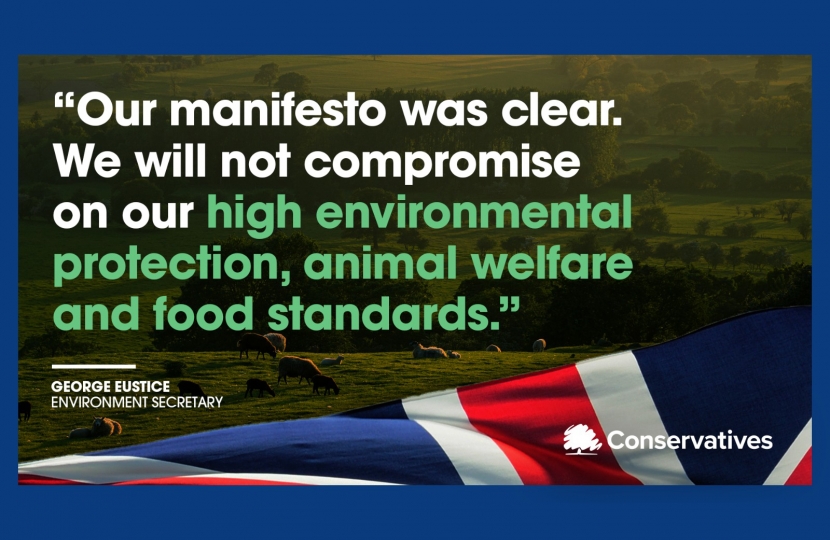
Greg Smith MP outlines his thoughts on the Agriculture Bill...
Last night the House of Commons voted on a number of amendments from the House of Lords on the Agriculture Bill.
I was frustrated to be at the end of the call list and unable to speak in the debate because of the time limit - but the points I would have made are as follows.
- Despite the scaremongering from opposition MPs and celebrities who should know better, the very same ban on hormone treated beef and chlorine washed chicken remains 100% in place. The same protections we have today on food will continue, enshrined in British law, as the transfer from EU law to the UK statute book under the Withdrawal Agreement. For example the legislation for the hormones in beef ban is contained in EU legislation 2003/74/EC. On chlorinated chicken – retained EU law under Section 3 of the Withdrawal Agreement: Regulation (EC) No 852/2004 defines ‘potable water’ as water meeting the minimum requirements laid down in Directive 98/83/EC. Anyone who says our food standards are not protected in law is simply wrong.
- The Agriculture Bill is about creating a new subsidy regime for our incredible British farmers (including, to declare an interest, my wife's family who are arable farmers). The Agriculture Bill ensures our farmers remain viable by putting in place new subsidy arrangements, moving to a system of public money for public good - so payments will be made, for example for environmental good - improving soil health, maintaining our countryside etc (all things that virtually every farmer I know does anyway). The central point here being that the Bill is not about trade, never was and never will be - it is about ensuring financial security for our farmers whilst they produce the food we all love and enjoy.
- Trade is a good thing: and most importantly of all it is through new trade deals across the globe that our farmers will become more profitable and prosperous. As I have stated in point 1, our standards are already protected in law when it comes to imports (indeed every standard observed pre-Brexit will continue after Brexit). Indeed, the amendment from the Lords would have actually challenged some existing trading relationships that benefit our farmers today. Indeed, trade is a two way process and it was with great joy, for example, I applauded the first British beef exports to the United States a few weeks ago. We need more of that, more top-class British agricultural exports being sold all around the world as the premium products we know they are. To oppose that, to try and stop new trade, would be fundamentally damaging to the long term prospects of so many farms in the UK.
So, let's look at this debate sensibly. Let's drop this nonsense that hardened protectionism would be a win for farmers, quite the opposite it would close a million doors on their future prosperity. Instead, let's get behind this Bill, get our farmers the subsidy they need, celebrate our high standards that are locked into law already, buy British, buy local and fly our flag with pride as we go to the world with the best quality food to be found anywhere and sell it into new markets.
Finally, in the midst of the Covid-19 pandemic, the importance of nutritious local food has perhaps not been so appreciated since the Second World War – and while our lives may be unrecognisable in many ways since the pandemic begun, our farmers are out, working hard to feed the nation in spite of abundant challenges: and I thank them all.





